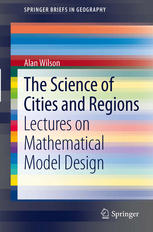

Most ebook files are in PDF format, so you can easily read them using various software such as Foxit Reader or directly on the Google Chrome browser.
Some ebook files are released by publishers in other formats such as .awz, .mobi, .epub, .fb2, etc. You may need to install specific software to read these formats on mobile/PC, such as Calibre.
Please read the tutorial at this link: https://ebookbell.com/faq
We offer FREE conversion to the popular formats you request; however, this may take some time. Therefore, right after payment, please email us, and we will try to provide the service as quickly as possible.
For some exceptional file formats or broken links (if any), please refrain from opening any disputes. Instead, email us first, and we will try to assist within a maximum of 6 hours.
EbookBell Team

4.3
18 reviewsA ‘science of cities and regions’ is critical for meeting future challenges. The world is urbanising: huge cities are being created and are continuing to grow rapidly. There are many planning and development issues arising in different manifestations in countries across the globe. These developments can, in principle, be simulated through mathematical computer models which provide tools for forecasting and testing future scenarios and plans. These models can represent the functioning of cities and regions, predicting the spatial demography and the economy, the main flows such as journey to work or to services, and the mechanisms of future evolution. In this book, the main principles involved in the design of this range of models are articulated, providing an account of the current state of the art as well as future research challenges.
Alan Wilson has over forty years working with urban and regional models and has contributed important discoveries. He has distilled this experience into what serves as both an introduction and a review of the research frontier. Topics covered include the Lowry model, the retail model, principles of account-based models and the methods rooted in Boltzmann-style statistical modelling and the Lotka-Volterra approach to system evolution. Applications range from urban and regional planning to wars and epidemics.